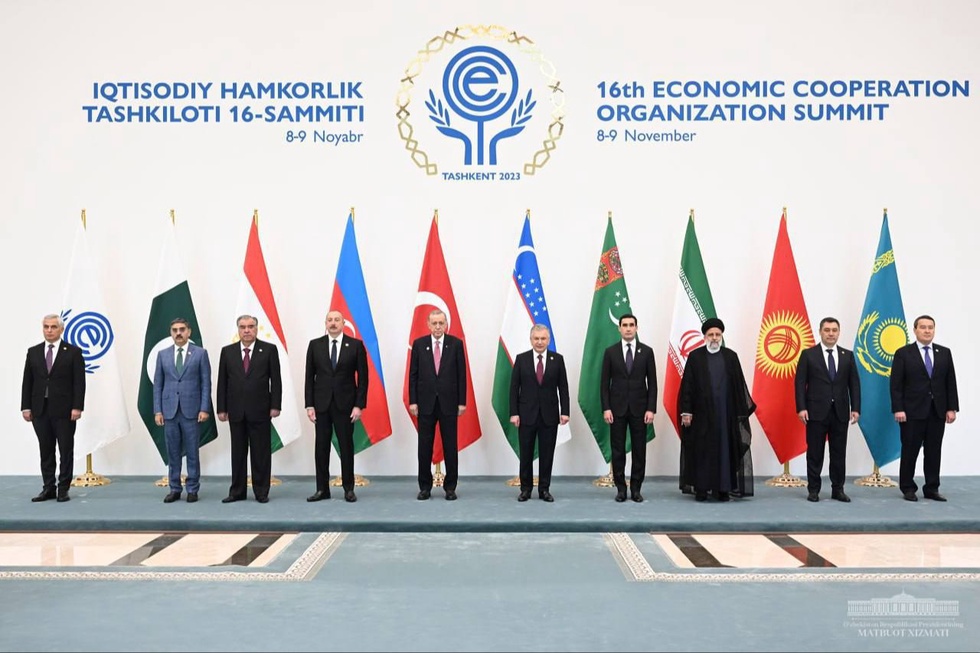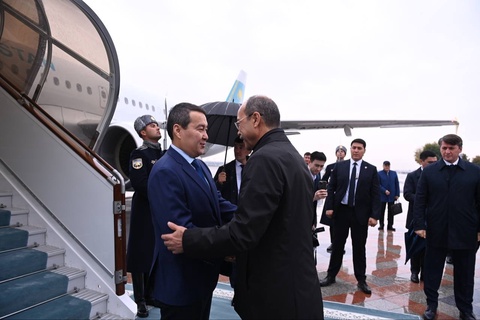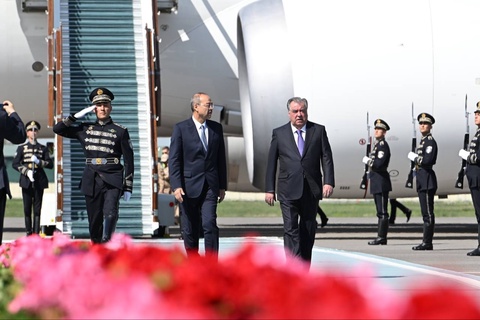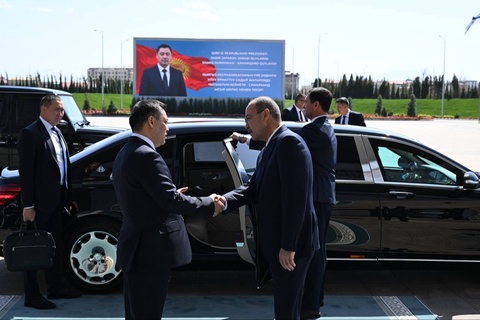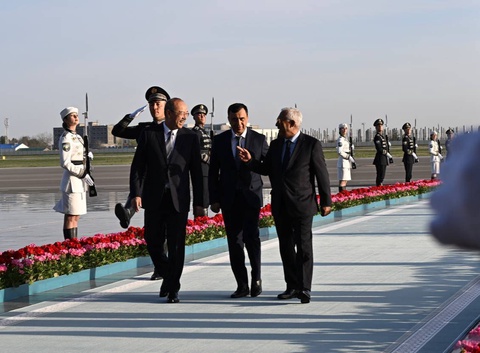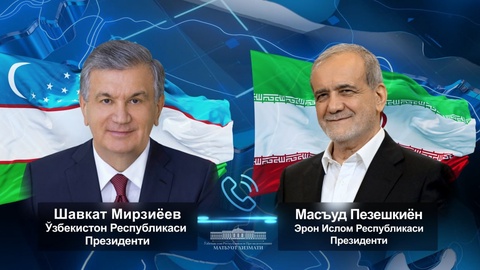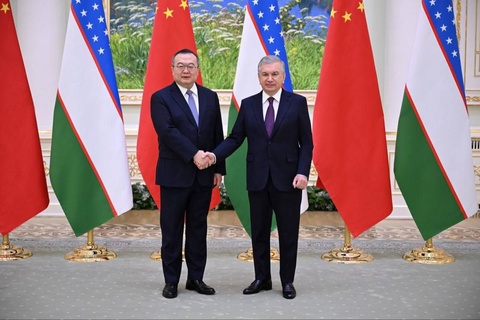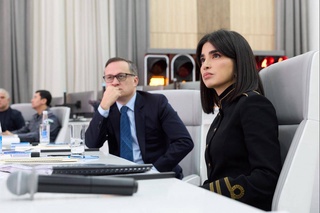The event, chaired by the President of the Republic of Uzbekistan Shavkat Mirziyoyev, was attended by the President of the Republic of Azerbaijan Ilham Aliyev, President of the Islamic Republic of Iran Ebrahim Raisi, President of the Kyrgyz Republic Sadyr Zhaparov, President of the Republic of Tajikistan Emomali Rahmon, President of the Republic of Türkiye Recep Tayyip Erdogan, President of Turkmenistan Serdar Berdimuhamedov, Caretaker Prime Minister of the Islamic Republic of Pakistan Anwaar-ul-Haq Kakar, Prime Minister of the Republic of Kazakhstan Alikhan Smailov, and Secretary General of the Economic Cooperation Organization Khusrav Noziri.
In accordance with the agenda, the prospects for multifaceted cooperation within the ECO and taking it to a new level were discussed. Views were exchanged on the current international and regional issues.
Opening the summit, the President of Uzbekistan expressed his special gratitude to all the guests for participating in the event and their significant contribution to developing mutually beneficial relations.
It was noted that the member-states of the Organization are closely linked by common history and religion, and they share rich culture and similar values.
As the President of Uzbekistan noted, the ECO region, home to half a billion people and with one-third of the world’s energy resources, has an excellent potential for developing cooperation in trade, economy, industry, investment, innovation, and transport.
The progressive dynamics of cooperation within the organization in recent years and the consistent implementation of proposals and initiatives voiced at the Summit in Ashgabat in 2021 were noted with satisfaction.
Systemic work is underway to transform the Organization to increase its efficiency and international profile. Recently, the Tashkent Declaration was adopted by the Ministers of Transport. Practical work is underway to establish a Clean Energy Center in Baku and a regional electricity market. A high-level Dialogue platform for ecology has been established. A network of the Organization’s tour operators has been set up, and the Safe Tourism Program has been approved.
At the same time, the President of Uzbekistan pointed out the tremendous untapped potential for enhancing comprehensive cooperation between the member states of the Organization. For example, the trade turnover between ECO countries totaled $85 billion last year. This represents only 8% of the total foreign trade of the Organization’s member-states.
Regrettably, the years of efforts to develop a preferential trade agreement have not delivered the expected results. There are still many restrictions and problems with barrier-free trade.
To give a new impetus to the development of cooperation within the ECO, the President of Uzbekistan proposed developing a new conceptual document “Strategic Objectives of Economic Cooperation-2035”.
In this important document, it is necessary to focus on such main areas as stimulating mutual trade, strengthening transport and communication connectivity, enhancing industrial cooperation, ensuring energy security, combating climate change, and deepening cooperation in tourism, cultural and humanitarian exchanges.
he Leader of Uzbekistan encouraged the adoption of the ECO’s Trade Facilitation Agreement, which shall focus on the facilitation of trade in goods and services, removal of technical and non-tariff barriers, digitalization of customs, phytosanitary and veterinary procedures, and development of electronic commerce. According to preliminary estimates, these measures will enable reaching at least a twofold growth in mutual trade by 2035.
Noting that the majority of the member states are landlocked, the President of Uzbekistan pointed out the importance of using the full potential of transcontinental transport corridors, launching multimodal corridors along China – Kyrgyzstan – Uzbekistan route and the Trans-Afghan Road.
The Leader of Uzbekistan also encouraged other members to join the document, adopted at the meeting of transport ministers held on November 2, 2023, in Tashkent on the development of the “Uzbekistan – Turkmenistan – Iran – Turkiye” Transport Corridor, and optimize mutual tariffs and fees.
It was proposed to establish ECO’s Digital Transport and Customs Office in Tashkent to widely implement and effectively coordinate these modern systems.
The Head of Uzbekistan noted the importance of adopting a Program of Joint Actions to increase the flow and protection of mutual investments and deepen industrial cooperation, creating an Interregional Industrial Exhibition with its first event in 2024 in Uzbekistan.
He also advocated expanding partnerships with the Organization’s Trade and Development Bank.
The increasing importance of harmonizing national energy strategies, developing interregional energy transmission networks, and the widespread introduction of green energy technologies was noted to ensure energy security. It was proposed to establish an ECO Council of Ministers of Energy to establish systematic cooperation in this area.
In connection with growing climate challenges, the President of Uzbekistan emphasized the need for strengthening cooperation in the fight against climate change and environmental protection. It was proposed to hold, within the framework of the upcoming Samarkand Climate Forum in 2024, the first conference of the ECO High-Level Platform on Environmental Issues, created at the initiative of Uzbekistan.
The Leader of Uzbekistan called on representatives of member countries of the Organization to actively participate in the meeting of the Committee to Review the Implementation of the UN Convention to Combat Desertification, which will be held in Uzbekistan this coming week, as well as to support the Samarkand Declaration to combat sand and dust storms.
Considering the vast potential for cooperation in tourism and the growing popularity of cross-border destinations, it was proposed to introduce joint tourist routes and increase common tourism programs under the “Silk Road” brand.
The Head of state also proposed to create an Advisory Committee on Tourism at the ECO Secretariat, consisting of tourism administrations and leading experts of member countries, as well as to hold its first meeting in the city of Shakhrisabz, declared the tourism capital of the organization.
Noting the importance of deepening cultural and humanitarian cooperation for further bringing together the peoples of the ECO member countries, the President of Uzbekistan initiated the annual holding of weeks of culture, art, and cinema, the establishment of youth creative festivals, and an innovative cooperation platform, and strengthening interaction in fundamental scientific areas.
In his speech, the President of Uzbekistan also touched upon pressing international and regional problems, particularly the Middle East and Afghanistan situation. He called for an immediate cessation of hostilities in the Gaza Strip, the start of peace negotiations, and the achievement of a reasonable compromise. Once again, he expressed his firm position on supporting the right of the people of Palestine to create their independent state, confirmed by UN resolutions.
The President of Uzbekistan also urged to increase humanitarian assistance to the Afghan people and address the profound social and economic problems through collective responsibility and effective mechanisms. As he noted, the active involvement of Afghanistan, which is also a member of the ECO, in the regional integration process is necessary for the region’s sustainable development.
The heads of delegations of Azerbaijan, Iran, Kyrgyzstan, Tajikistan, Türkiye, Turkmenistan, Pakistan, Kazakhstan, and ECO Secretary General Khusrav Noziri also addressed the summit.
In accordance with the agenda, the President of Uzbekistan, as Chairman of the summit, announced the winners of the Organization’s award for achievements in science. They were one representative from each country.
Following the event, the Tashkent Communiqué was adopted.
The chairmanship of the ECO passed to Iran, and Azerbaijan was determined to host the next summit.


